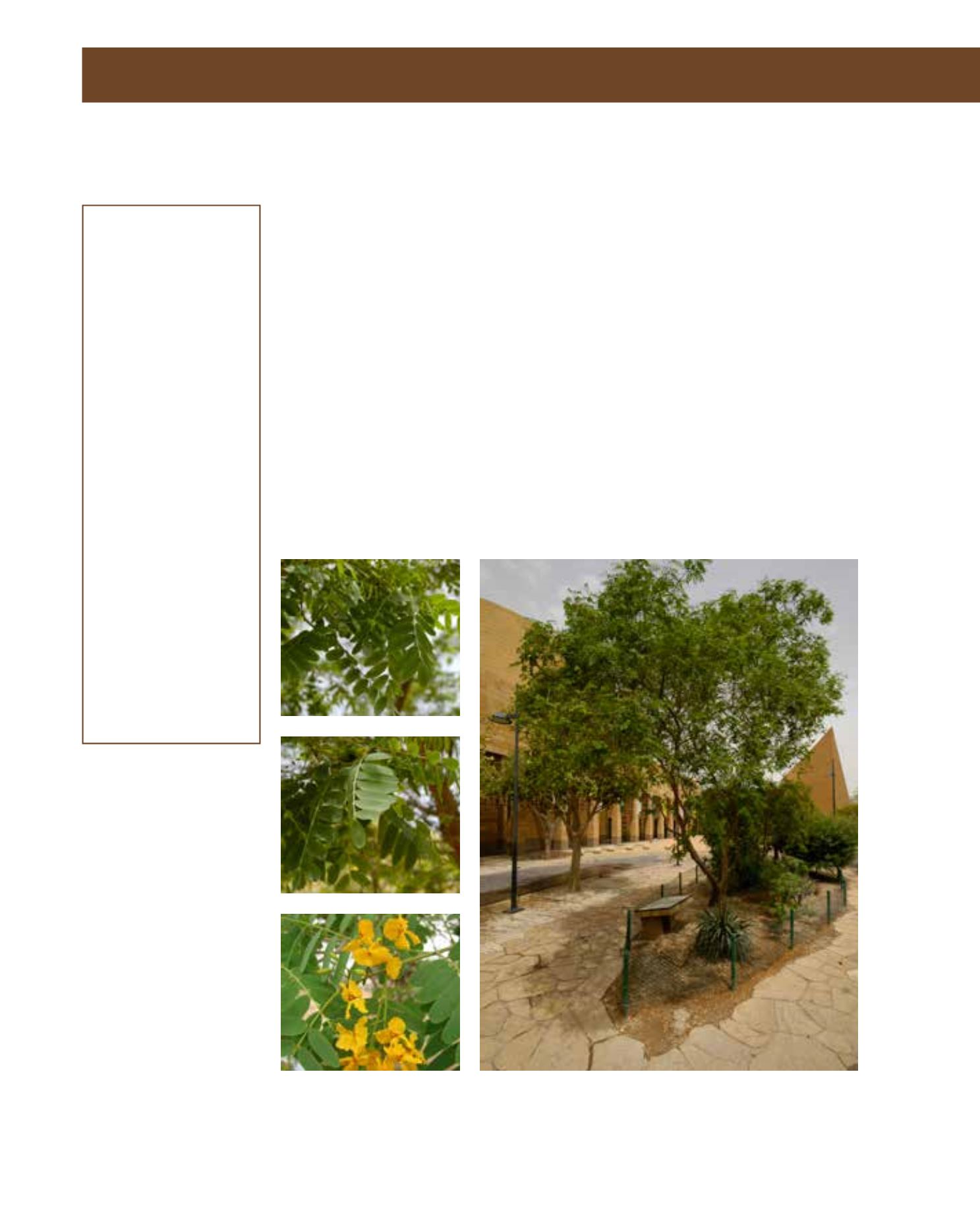

GENERAL
Origin
:
sub-tropical,
tropical
Vigour
:
fairly fast
growing
Humidity
:
semi-humid, very
humid
Propagation :
sowing and
pricking out
Maintenance :
moderate
CONDITIONS
Urban climate :
resistant
Dessication :
vulnerable
Stagnant water :
vulnerable
Irrigation
:
medium
Salinity/ppm :
moderate (2000
ppm)
Hardiness
:
-3°C
SHAPE
Type
:
tree
Height
:
15 m-35 m
Spread
:
10 m-18 m
Foliage
:
semi-evergreen
FLOWER
Colour
:
bright yellow
Size
:
15 cm
Period
:
April - September
FRUIT
Type of fruit :
pod
Fruit size
:
4 cm - 8 cm
Toxicity
:
inedible
Yellow Jacarandas are semideciduous trees from Bolivia, where they reach a height of 35 metres.
In cultivation, they often stagnate at 10 metres, forming a flat crown that widens to an umbrella-
like shape with age to about 10 metres in width. The foliage is pinnately compound and consists of
numerous ovate, fresh-green leaflets. From late spring to early summer, clusters with golden, pea-
shaped flowers are borne abundantly. They create a dense carpet when they drop, which should
be borne in mind when the tree is used in parks or large gardens as an eye-catcher. They form
winged pods. As a tropical native, this tree goes dormant according to circumstances rather than
by season. In Arriyadh, however, the leaves are shed for a brief period in late winter to regrow a
few weeks later. Prolonged drought may induce the same procedure in summer, which should be
prevented by moderate watering in well-drained soil. The tree may be exposed to full sun, takes
salinity and tolerates light frosts. Alkaline soils should be improved by adding compost and
applying acidic fertilisers. Young trees should be pruned and staked initially to form a straight
trunk. Yellow Jacarandas adapt to variable conditions and tend to escape from cultivation in
semi-humid climates. They are easily propagated by seed, and require only a minimum of care
once established. As shade trees, they are ideal where their dropped flowers and seed packets do
not create a nuisance. Consideration should also be given to the aggressive roots, which may lift
pavements or asphalt.
303
Tipuana tipu,
Fabaceae
Yellow Jacaranda,
Pride of Bolivia, Rosewood
















